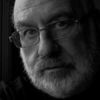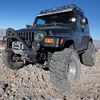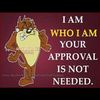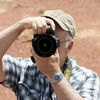DX or FX
Mar 29, 2014 13:06:34 #
kb6kgx
Loc: Simi Valley, CA
Kmgw9v wrote:
Did I understand you to say that the D300 is the only "pro quality" body produced from anyone?
Mar 29, 2014 13:07:04 #
kb6kgx
Loc: Simi Valley, CA
Kmgw9v wrote:
Did I understand you to say that the D300 is the only "pro quality" body produced from anyone?
How much more clear could that have been stated?
Mar 29, 2014 13:34:28 #
Gene51 wrote:
One answer to this - yes. Everything is improved with a larger sensor, especially noise and image quality. FX gear is pricey, but intended for more serious photographers and pros. D7100 is a great camera, but not as good as the FF cameras.
I am sorry but there are plenty of serious photographers that use A D7100. I would rather have a D7100 for the higher fps than a D600 for outdoor sports.
Mar 29, 2014 13:37:19 #
shutterbob wrote:
I am happy with the D7100, but I just figure that ... (show quote)
I have found the size of the sensor works very much like the size of the film format back in the days of film photography. The larger the negative, the better the image quality in terms of smaller grain and far better tonal quality. The same goes, for the most part, with sensor size. The larger sensor seems to give a more complete realistic tonal range to the image. Smaller senors may have a similar dynamic range, but compared to the large sensor may look a bit "overcooked" by comparison.
I watched a presentation comparing the Nikon D800 to the Hasselblad with a digital back. Again, no comparison. The Hasselblad totally blew the D800 image out of the ball park in terms of the beauty of the tones, especially facial tones. The images just looked more relaxed and natural. Granted this was a side by side comparison, so if you aren't looking from one to the other you won't notice it as much. All things are relative.
While no digital sensor of any size seems to give the sense of realism of actual film, the larger sensors do come the closest in my estimation.
Mar 29, 2014 14:38:13 #
I guess we could compare the difference like in the film days we had different film formats the most popular 35mm and Medium format, now we have DX and FX. So I would compare DX to 35mm and FX to Medium format. Then of course there are all the other sensor sizes and all the other film sizes/formats. So if you are happy with the results you're getting then stick with it, until your skills advance beyond the capabilities of the camera, then find something that will. The old saying: "If it's not broken don't fix it!"
I know too many people that are so equipment crazy, they don't take a lot of great pictures because the spend too much time trying to find the best, and debating what is the best. So if your too sexy for your camera gear then you better get some equipment that will suit you better.
I know too many people that are so equipment crazy, they don't take a lot of great pictures because the spend too much time trying to find the best, and debating what is the best. So if your too sexy for your camera gear then you better get some equipment that will suit you better.
Mar 29, 2014 14:51:12 #
Mark7829
Loc: Calfornia
shutterbob wrote:
Forgive my ignorance again, but I was under the impression that bokeh was determined more by f - stop, and the softness of the bokeh by the type of blades in the lens. I also understand that longer lenses will provide more bokeh at any given f - stop than a normal or wide angle lens. Without getting too technical, what am I missing?
It is more than that. You can find comparative pictures and more information on the internet. FX has a shallower DOF in comparison with a DX. Shallower DOF = Better Bokeh
Mar 29, 2014 15:11:16 #
shutterbob wrote:
I've been at this photo thing for quite a while and am fairly heavily invested in DX gear (Nikon D7100, 10-24, 17-55, 10.5, etc). Is there any real benefit to upgrading to FX? I am happy with my D7100 but have wondered, since FX cameras and lenses are so much more expensive, are they really worth it?
Bigger sensor means slightly higher quality images, and usually a more sensitive ISO with less noise. If you are happy with your images, then I'd so there is no benefit for you but if you think your images are lacking something and you know you can do better with better equipment the go for it.
Mar 29, 2014 15:21:04 #
Mr. PC:
http://www. is good for most things. You only need to make it: https://www when it is a secure site. Usually for $$$ transaction or "secret" stuff. :D Hope this helps.
http://www. is good for most things. You only need to make it: https://www when it is a secure site. Usually for $$$ transaction or "secret" stuff. :D Hope this helps.
Mar 29, 2014 15:42:35 #
shutterbob wrote:
I've been at this photo thing for quite a while and am fairly heavily invested in DX gear (Nikon D7100, 10-24, 17-55, 10.5, etc). Is there any real benefit to upgrading to FX? I am happy with my D7100 but have wondered, since FX cameras and lenses are so much more expensive, are they really worth it?
Stick with what you have if you are happy with it and it serves your purpose. If you are thinking some day you may move to fx, stop buying dx lens's as fx lens's will work just as well on your camera, but not the other way around.
FX cameras, in general may have a little better dynamic range, and maybe better hi iso performance...on average. If you take an older fx camera and compare it to your d7100...the d7100 may be better in those respects. FX sensor cameras in general need higher end lens's, since they use the whole (fx) lens and not just the center area, and cheaper lens's more often have a tendency to be soft on the edges. Since most lens's are sharper in center, they will work better on your dx.
Also, if you do wildlife for example...that 1.5 sensor will get you in closer with a 300mm than a 400mm would on a 1.0 fx. So, there can be some advantages to a dx camera. If you are happy with what you have no sense in spending a lot more money right away, since the d7100 will capture excellent images. Its not the tool that makes the most difference...its the operator. I shoot with both a d800(fx) and a d300(dx). I bet you cant tell which images came from which. :)
Mar 29, 2014 15:49:22 #
skiman wrote:
I am sorry but there are plenty of serious photographers that use A D7100. I would rather have a D7100 for the higher fps than a D600 for outdoor sports.
I have been considering another camera body. I presently have a d800, and a d300s. I was thinking about something with a little higher pixel count for wildlife, and macro. From whats available today if I added another body I would probably pick up a d7100 for the 1.5 sensor. Both fx and dx have advantages.
Mar 29, 2014 15:52:17 #
Pentony
Loc: Earth Traveller
Mr PC wrote:
No need to remember. Just hit "Preview" before you do "Send."Can never remember if you need the https or not...
Correct if necessary then hit "Send."
Mar 29, 2014 15:54:01 #
brrywill wrote:
I have found the size of the sensor works very muc... (show quote)
I guess you didnt see this video comparing the h40 to the d800. http://fstoppers.com/video-the-nikon-d800-vs-hasselblad-h4d-40
The $3000 d800 did pretty good along side a $18,000 hb. It is actually better in many respects such as hi iso performance and shadows.. etc. Granted it did a little better on skin tones...but they really had to "pick at the edges" so to speak to bring out the difference.
Hell, I suspect the d7100 would beat the h40 at high iso performance. H40 didnt do that well if I remember correctly. Been a while since I watched it.
Mar 29, 2014 17:20:27 #
Mark7829
Loc: Calfornia
kb6kgx wrote:
Bokeh, and Im new to that term, is essentially ... (show quote)
Well, you are here in these forums because you have interest in photography and I will assume that you also have an interest in improving your photography. After reading you will likely hear that moving to FX will not only improve your photography but will likely flame that passion. The term Bokeh is widely known, and now you know it. The question is have you experienced it? It is not just a blur but a rich and creamy effect. You will only experience this by shooting on the wide open side, with quality lenses and with a full frame system. Yes you will get blur under other conditions but will not get the "ahhhh" that makes a difference. So while what you don't know won't hurt you, you will not achieve the results you could if not using a full frame system.
You might doubt your work and ask yourself, is this the best I can do. While there are those who do exceptionally well with DX, and many will argue that DX is fine. I will not disagree. I just don't want my creativity limited by equipment. I want to print, frame and show my work. I want to go to great places, places that I might not ever see again and not miss a pixel.
Mar 29, 2014 17:25:23 #
Mark7829 wrote:
Well, you are here in these forums because you hav... (show quote)
Quality of bokeh has to do with lens's more than anything else. Granted, the larger sensor helps. The fast high end lens's get heavy...money wise as well as weight. It depends on what you are shooting as too how important any given aspect is.
Mar 29, 2014 17:27:03 #
Mark7829
Loc: Calfornia
JimGuy wrote:
Quality of bokeh has to do with lens's more than anything else. Granted, the larger sensor helpls. The fast high end lens's get heavy...money wise as well as weight.
No, FX systems have a shallower DOF which is how you achieve bokeh.
If you want to reply, then register here. Registration is free and your account is created instantly, so you can post right away.





